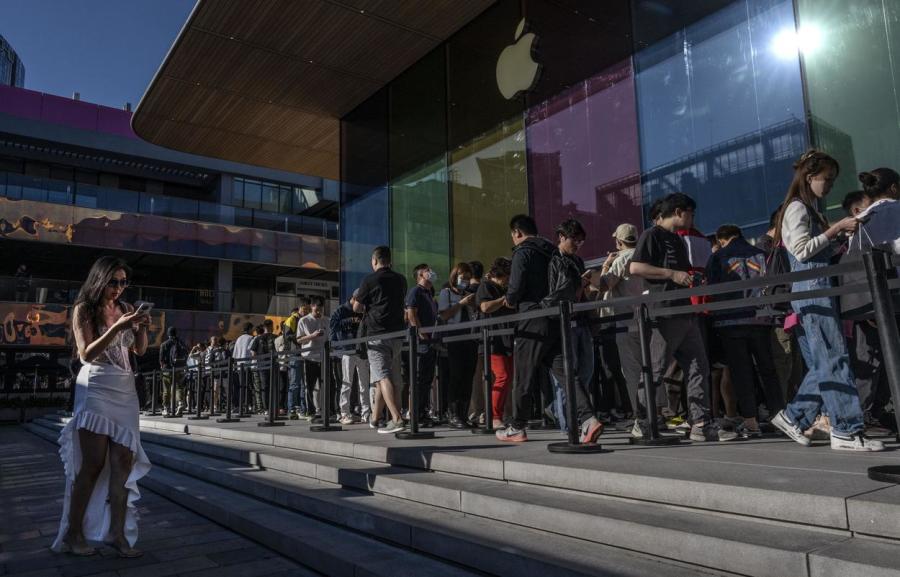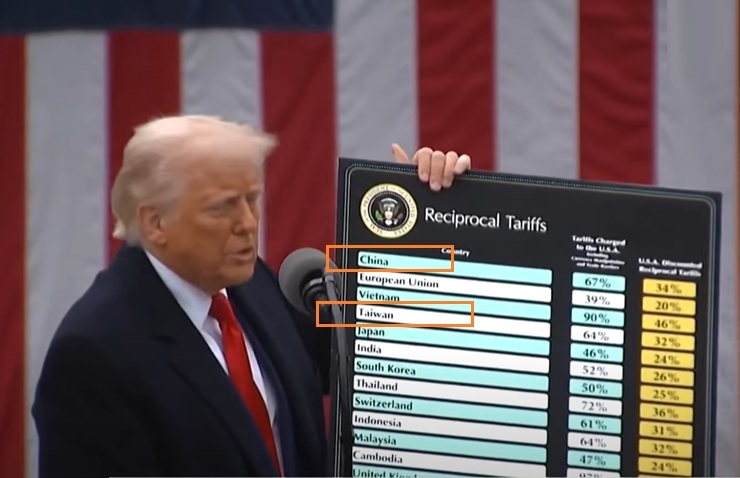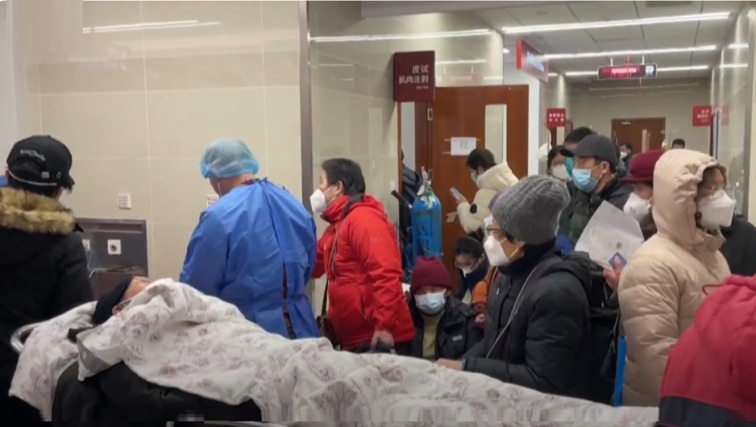Data Image: On September 22, 2023, people line up outside a flagship store in Beijing, China, to buy the newly launched iPhone 15 and other Apple products. (Photo by Kevin Frayer/Getty Images)
[People News] Amid the ongoing U.S.-China trade conflict, Apple is striving to boost iPhone production in India to lessen its dependence on 'Made in China.' However, the company has encountered challenges, with reports indicating that the Chinese Communist authorities have delayed or even unexpectedly blocked the shipment of iPhone manufacturing equipment to India in several instances.
As reported by Radio Free Asia, India currently assembles approximately 30 to 40 million iPhones each year, which accounts for about one-fifth of the global total production. Apple sells over 60 million iPhones annually in the U.S., making up around 28% of last year's global sales. The Financial Times has cited sources stating that Apple aims to shift all iPhones sold in the U.S. to be assembled in India by the end of next year at the earliest. This means that the number of iPhones assembled in India is expected to double; Apple has declined to comment on this matter.
A report from 《The Information》 states that during the COVID-19 pandemic in 2019, the Chinese Communist Party enforced strict lockdown measures that disrupted production lines, leading Apple to expedite the relocation of its manufacturing operations outside of China. Currently, the Trump administration in the United States has imposed high tariffs on products made in China, intensifying Apple's urgency to diversify its manufacturing. The company aims to shift approximately 50% of its iPhone production capacity out of China, but this transition is encountering resistance from the Chinese government.
Approval processes have lengthened from 2 weeks to as much as 4 months
Sources familiar with Apple's supply chain in China indicate that authorities are intentionally delaying Apple's plans to move iPhone production to India to avoid job losses that could negatively affect the economy. Local governments have even cautioned Apple’s supply chain partners against reducing local employment.
The report highlights that moving manufacturing equipment from China to India has become increasingly complicated. For example, Foxconn, which assembles iPhones, has experienced an extension of the approval time for transferring manufacturing equipment from China to its Indian factory from the original 2 weeks to potentially 4 months. Additionally, authorities have rejected some export applications without providing any justification. The Chinese Communist Party is particularly focused on scrutinising high-precision laser machines used for welding metal components to the iPhone's frame, equipment for testing waterproof capabilities, and devices referred to as 'pick-and-place machines.'
Apple is looking to source the equipment necessary for iPhone manufacturing from countries outside of China. At the same time, the company is encouraging certain Chinese equipment suppliers to establish factories in Southeast Asia to circumvent restrictions. Some suppliers have suggested that Apple might also consider purchasing equipment from manufacturers in Japan, South Korea, and Taiwan, even if it comes at a higher cost.











News magazine bootstrap themes!
I like this themes, fast loading and look profesional
Thank you Carlos!
You're welcome!
Please support me with give positive rating!
Yes Sure!